Sridevi
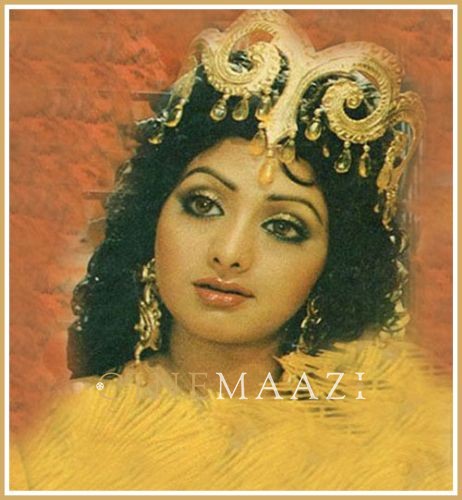
Subscribe to read full article
This section is for paid subscribers only. Our subscription is only $37/- for one full year.
You get unlimited access to all paid section and features on the website with this subscription.
Not ready for a full subscription?
You can access this article for $2 , and have it saved to your account for one year.
- Real Name: Shree Amma Yanger Ayyappan
- Born: 13 August 1963 (Meenampatti, Virudhunagar, Tamil Nadu)
- Died: 24 February 2018 (Dubai, UAE)
- Primary Cinema: Hindi
- Parents: Ayyapan Yanger, Rajeswari Yanger
- Spouse: Boney Kapoor
- Children: Janhvi Kapoor, Khushi Kapoor
“Her career bore witness to the changing currents of Indian cinema, from conservative family-oriented mid-century movies to the socially engaged woman-power cinema of contemporary times, while always remaining the nation’s primary spectacle.” – The Guardian
Acknowledged as “Bollywood’s first female superstar”, Sridevi was the undisputed queen and one of the highest-paid artistes of Indian cinema in her time, often overshadowing the male actors she starred with. She demonstrated uninhibitedness balanced by subtlety in her enormous versatility across roles ranging from comedic to emotional to seductive; she was equally renowned for her dancing skills. Charming audiences in a range of female-centric films, her feisty portrayals were a refreshing departure from the conventional coy heroine. Some of her best-known performances in South films include Moondram Pirai (1982), Moondru Mudichu (1976), 16 Vayathinile (1977), Sigappu Rojakkal (1978), Varumayin Niram Sigappu (1980), Vaazhve Maayam (1982), and Kshana Kshanam (1991). She would go on to crossover to Hindi cinema, achieving nation-wide fame and appeal, establishing herself as a mega pan-India star. Some of her best known works include Sadma (1983), Nagina (1985), Lamhe (1991), Chandni (1989), Mr India (1987), ChaalBaaz (1989), Judaai (1997), Khuda Gawah (1992) and English Vinglish (2012). Besides the Padma Shri, among the awards she has won for her work are the Kerala state film award for Poombatta (1971), a Filmfare South special award for 16 Vayathinile (1977), the Tamil Nadu state film award for Meendum Kokila (1981), the Filmfare best actress award for ChaalBaaz (1989), the Filmfare award for best actress – Telugu and the Nandi award for Kshana Kshanam (1991), the Filmfare best actress award for Lamhe (1991), special awards by Filmfare for her performances in Nagina (1986) and Mr India (1987), multiple awards including the Stardust award for best actress for her performance in English Vinglish (2012), and the National Film award for best actress for Mom (2017). It is no surprise that she regularly topped popularity polls such as the 2013 national poll conducted by CNN-IBN on the occasion of the centenary of Indian cinema in which she was voted ‘India's Greatest Actress in 100 Years’.
Born on 13 August 1963 to mother Rajeswari and lawyer father Ayyapan in Meenampatti village, near Sivakasi, Tamil Nadu, she was named Shree Amma Yanger Ayyappan but would become popularly known by her screen name Sridevi. Her association with films started when she was just four; she debuted as a child artiste in the Tamil film Kandhan Karunai (1967). Quickly achieving popularity, she acted in Telugu, Malayalam and Hindi films as well, such as Thunaivan (1969), Poompatta (1971) for which she won the Kerala state film award for best child artiste, Nam Naadu (1969), Prarthanai (1970), Babu (1971), Adi Parashakti (1971), Badi Panthulu (1972), Bala Bharatam (1972), Vasantha Maaligai (1972), Thirumangalyam (1974), Bhakta Kumbara (1974), Rani Mera Naam (1972), and Julie (1975), in which she played Irene, the younger sister of the protagonist played by Lakshmi.
Decades later, in a later interview, she would admit that growing up, she lost out on attending school and college life, pointing out that she got into the film industry and worked without a gap. “From child actor, I went straight to heroine. There was no time to think and I was grateful for it.”
She debuted in a leading role in 1976 in the Tamil film Moondru Mudichu directed by K Balachander. Starring alongside Kamal Haasan and Rajinikanth, she played a college-going girl who becomes the centre of a love triangle. In 1977, she won attention for her performance in 16 Vayathinile, the Tamil language romantic drama film co-written and directed by debutant director Bharathiraja. It also starred Kamal Haasan and Rajinikanth, focusing on the vulnerabilities and strengths of the 16-year-old schoolgirl Mayil (Sridevi), as she faces and overcomes life’s challenges. She would also star in the film's Telugu remake Padaharella Vayasu (1978).
Fast establishing her credentials as a performer of substance across the South Indian film industries, she would feature in notable films such as Thulavarsham (1976), Bharathi Raja's Sigappu Rojakkal (1978), Karthika Deepam (1979), Johny Ustad (1980), Sardar Papa Rayudu (1980), Varumayin Niram Sigappu (1980), Meendum Kokila (1981), Konda Veeti Simham (1981), and Moondram Pirai (1982).
Besides acting with veterans such as N T Rama Rao in Vetagaadu (1979), Sardar Papa Rayudu (1980), and Bobbili Puli (1982), as well as Sivaji Ganesan in Kavari Maan (1979) and Sandhippu (1983), she would mainly star opposite then-budding stars Kamal Haasan whom she was paired with in approximately 27 films, and Rajinikanth as well as Telugu superstar Krishna and Chiranjeevi.
While she made her debut in Hindi films with Solva Sawan (1979), 1983 would be the defining year for her in the Hindi film industry. With Balu Mahendra’s sensitive and heart-wrenching Sadma (1983) she firmly established her acting credentials playing a child-woman suffering from retrograde amnesia, even as she achieved thumping box office success the same year with K Raghavendra Rao’s blockbuster Himmatwala (1983).
Cementing her place as one of the industry’s top actresses, she left her impact in films such as Tohfa (1984) which was the highest-grossing film of the year, Nagina (1986), Karma (1986), and Janbaaz (1986), in which, despite making a guest appearance, she overshadowed the female lead actress. If she was hailed as the “undisputed #1” with the Harmesh Malhotra-directed snake fantasy Nagina in which she played a shape-shifting woman, she underlined her superstardom in the Shekhar Kapur-directed Mr India (1987), playing a goofy crime journalist. Besides continuing her domination over her contemporaries, such was her impact that jokes did the rounds that the film should have been titled Ms India instead!
She reaffirmed her position as the top female star of the 1980s with Yash Chopra's romantic musical Chandni, essaying the title role. The film, one of the biggest blockbusters and most watched films of Indian cinema, established her as the ‘nation’s sweetheart’. The same year, she emphasised her stupendous talent again with ChaalBaaz. The slapstick comedy saw her play a double role of twin sisters, depicting both ends of the spectrum - comedy as well as tearfulness – with incredible skill.
In Yash Chopra’s definitive Lamhe (1991), she essayed both mother and daughter in the intergenerational romantic drama which is considered one of the most remarkable films of her career. Though the film was not an unmitigated success at the box office, it was critically acclaimed and went on to become a cult classic over time. Her success spree continued with the epic drama Khuda Gawah (1992), opposite Amitabh Bachchan, in which she played a double role again, essaying an Afghan warrior Benazir and her daughter Mehndi. She was appreciated even in the colossally expensive flop that was Roop Ki Rani Choron Ka Raja (1993), and would stand out again for her significant contribution to theMahesh Bhatt-directed thriller Gumrah (1993), playing a singer falsely accused of drug-smuggling in Hong Kong. She aced her role of the dominant business tycoon in Laadla (1994), followed by her avaricious housewife act in Judaai (1997).
Following her marriage to producer Boney Kapoor in 1996 and the demise of her mother, she took a break from films, returning after a six-year hiatus to appear briefly on television in the sitcom Malini Iyer (2004–2005), 10 Ka Dum and Jeena Isi Ka Naam Hai (2004) as well as a judge in the show Kaboom (2005).
In 2012, she returned to the big screen after a 15-year gap, with the comedy drama English Vinglish (2012), directed by debutante director Gauri Shinde. Winning widespread acclaim for her performance as Shashi Godbole, a housewife who enrolls in an English-speaking course after she is mocked by her family for lack of English skills, her execution of the role was hailed as “a masterclass for actors”. Her comeback drew attention to the fact that her craft had noticeably grown more nuanced and sophisticated.
It was followed by her performance in the Tamil fantasy action adventure film Puli (2015), and her home production titled Mom (2017), which marked her 300th film. The psychological thriller film saw her play a mother out to avenge the rape of her daughter. Released to positive reviews, her National film award-winning performance was hailed by critics who pointed out that she “needs only a twitch or a glance to prove that she is a powerhouse and there are several scenes she lifts by just being there,” reinstating her stature as “the high-priestess of Indian cinema”.
She would make her last onscreen performance in a cameo in Aanand L Rai’s Zero (2018), which starred Shah Rukh Khan.
Several popular songs have been picturised on her over the course of her career, such as Hawa Hawaii, Chandni o meri Chandni, Na jaane kahan se, Kate nahin kat te, Main teri dushman, Navrai majhi, Aye zindagi gale laga le, Kabhi main kahoon, Oeee baba, Meri bindiya, Har kisiko nahin milta, Bangaru bathu guddu, Mere haathon mein nau nau, Ososi Pillakodipetta, and Lagi aaj sawan ki, among others.
Her impact has been tremendous, on budding actresses as well. Several stars such as Juhi Chawla, Karisma Kapoor, Kajol, Rani Mukerji, Preity Zinta, Aishwarya Rai, Kareena Kapoor, Priyanka Chopra, Katrina Kaif, Vidya Balan, Deepika Padukone, Asin, and Anushka Shetty have named her as an inspiration. Priyanka Chopra even wrote in Time magazine, “Everyone wanted her and wanted to be like her. She could be childlike, grown-up, funny, serious, beguiling, sexy—she was the ultimate actor. ...She was my childhood, and one of the big reasons I became an actor.”
A fashion icon, her personal style ranged from stylish casual to opulent. She walked the ramp as a fashion model for designers Priya and Chintan as well as Sabyasachi, and also displayed the work of jewellery designer Queenie Dhody. Besides film magazine such as Stardust and Cine Blitz, she also appeared on the cover of fashion and lifestyle magazines such as Hi Blitz, Marie Claire, L'Officiel, and Vogue. At the Ciroc Filmfare Glamour & Style Awards in 2015, she was awarded the Ultimate Diva award.
Completely candid in front of the camera and known for her portrayal of vivacious and exuberant characters, off screen, she was introverted and reserved. As CNN-IBN correspondent Rajeev Masand observed, “I have never known anyone who was so painfully shy, so quiet off-screen, who just transformed into a force of nature when the cameras came on. She was an interviewer’s nightmare, but the movie-buff’s dream.” Having begun to act when she was just four, her shyness possibly also stemmed from her lack of formal education and the chance to interact with youngsters her own age. She was invariably accompanied by her mother and sister on shoots. Later, she also developed a dislike for crowds and noise.
Extremely discreet about her personal life, in the 1980s she was reported to have married fellow actor Mithun Chakraborty; the relationship evidently did not last. In 1996, she married producer Boney Kapoor. The couple has two children, Janhvi Kapoor and Khushi Kapoor, who have both followed their mother’s footsteps into acting.
Sridevi passed away on 24 February 2018, due to accidental drowning in a bathtub in her hotel room in Dubai. She was 54. She was cremated with state honours and also received a gun salute at her funeral. More than 7,000 people were reportedly part of the funeral procession. Her ashes were later immersed by her family in the sea off the coast of Rameswaram in South India.
Her passing drew an outpouring of grief from the film industry, friends, and fans. Her husband, Boney Kapoor, wrote: “To the world, she was their Chandni, the actor par excellence, their Sridevi, but to me, she was my love, my friend, mother to our girls, my partner. To our daughters, she was their everything, their life. She was the axis around which our family ran.” While President Ram Nath Kovind wrote: “Shocked to hear of passing of movie star Sridevi. She has left millions of fans heartbroken. Her performances in films such as Moondram Pirai, Lamhe and English Vinglish remain an inspiration for other actors,” Prime Minister Narendra Modi stated: "Saddened by the untimely demise of noted actor Sridevi. She was a veteran of the film industry, whose long career included diverse roles and memorable performances.”
Published biographies of her include Sridevi: The Eternal Screen Goddess by author and screenwriter Satyarth Nayak, Sridevi: Queen of Hearts by Lalita Iyer.
-
Filmography (77)
SortRole
-
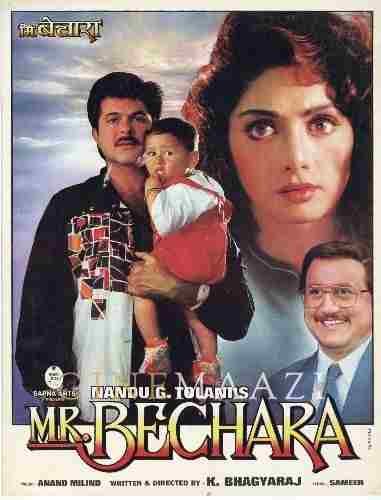
Mr Bechara 1996
-
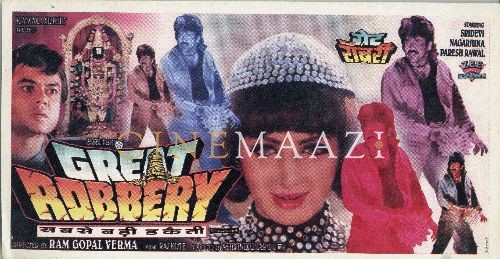
Great Robbery 1996
-
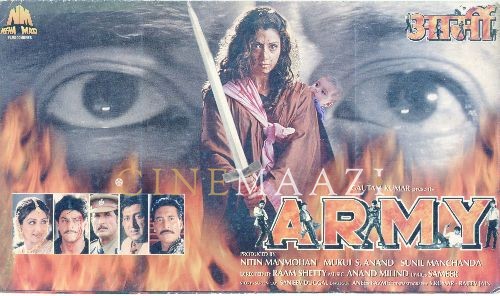
Army 1996
-
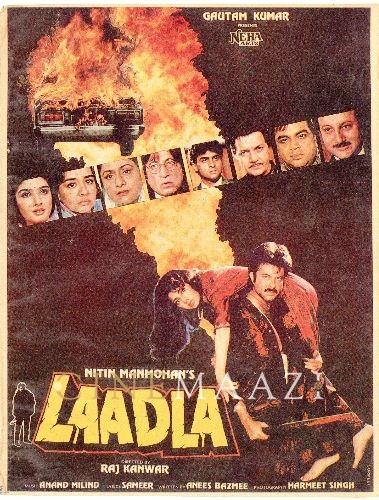
Laadla 1994
-
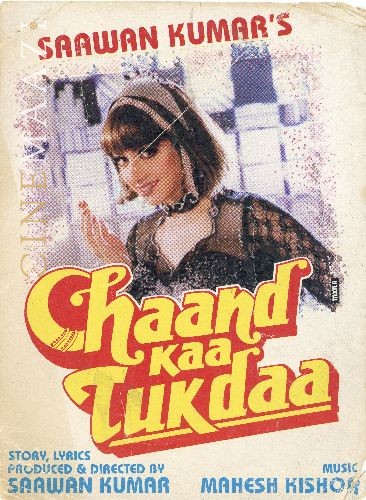
Chaand Kaa Tukdaa 1994
-
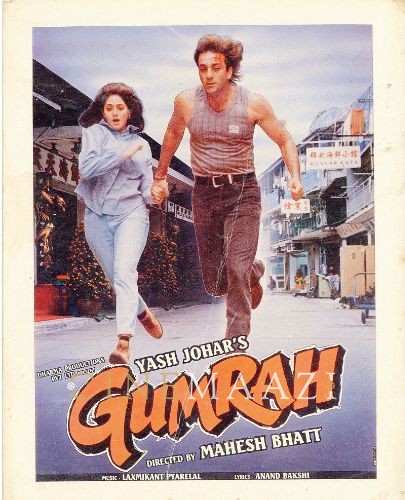
Gumrah 1993
-
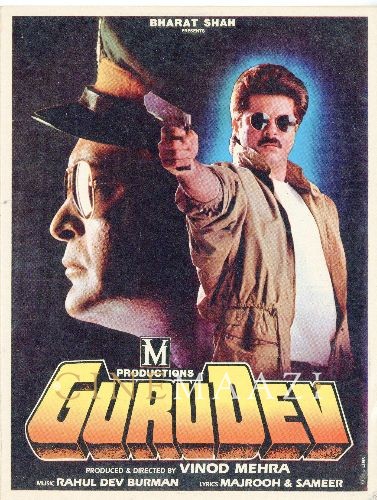
Gurudev 1993
-
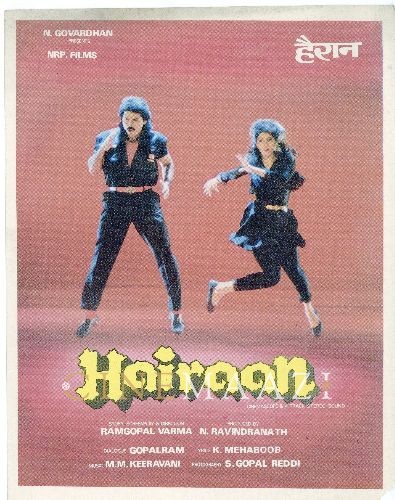
Hairaan 1993
-
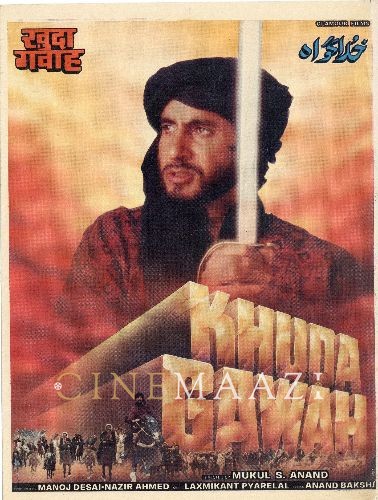
Khuda Gawah 1992
-

Heer Ranjha 1992






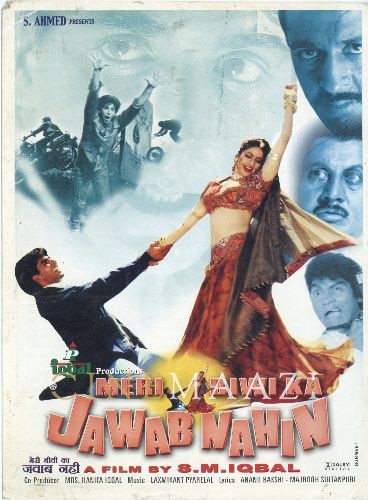
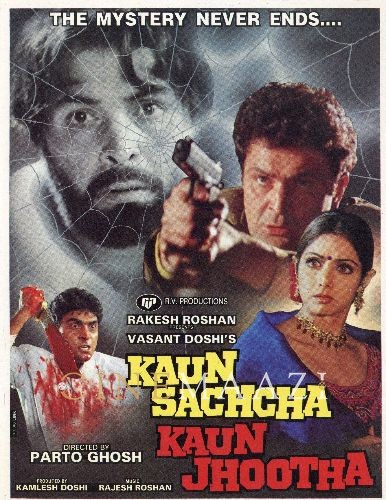

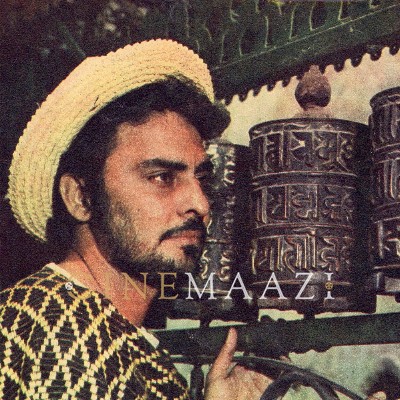
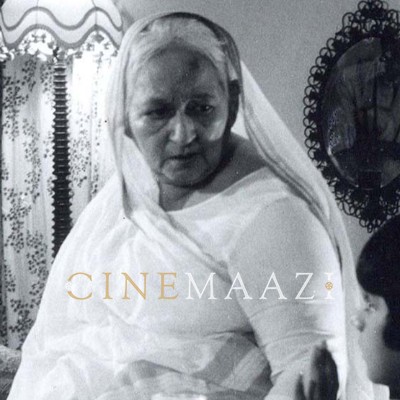


.jpg)



